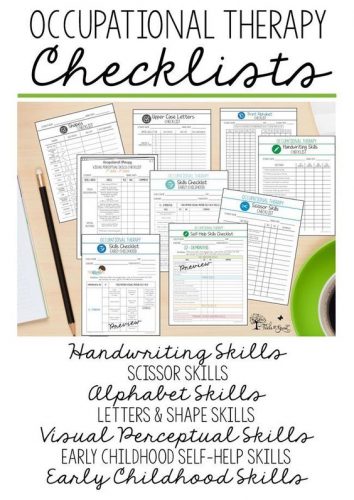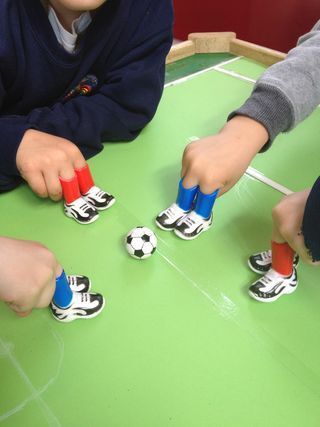
Be your child’s occupational therapist critique.
Your child’s senses are continually developing, and their senses are constantly being overwhelmed by new experiences and external stimuli. Sirens and loud noises that adults can easily tune-out are surprising to infants; flavors of sweets become exponentially thrilling to toddlers.

The Role Of Occupational Therapists
Aside from the five senses, children are also cultivating two distinct inner senses – the vestibular and the proprioception senses. Vestibular connects coordination and balance while proprioception grants posture and motor control.
When children experience developmental delays in coping and synthesizing with all encountered stimuli that come from their environment, that’s when occupational therapists finally step in. Occupational therapists (OT) for pediatric patients are skilled in addressing children’s physical and emotional welfare together along with the environmental and social factors that may affect proper functioning.
“Parents and other caregivers can help children by asking what the underlying problems are, not by labeling the child as having a disorder,” says Dona Matthews, Ph.D.

Choosing Your Child’s Occupational Therapist
There is a considerable number of essential things that you have to consider in choosing your child’s OT.
Establishing The Foundation During The Introduction
Right on the first visit, the occupational therapist must provide a sensory questionnaire that the parents must fill out. Aside from that, parents must also provide a clear, if not, detailed history of their child’s development. Then the child has to go through a session wherein he or she will be observed doing things like grasping, playing, or cutting. While occupied, the child is also assessed for his or her language skills, frustration tolerance, and attention span. Motor skills may also be evaluated inside a gym by utilizing therapy balls, swings, and other therapeutic equipment.
Knows How To Lessen The Child’s Frustration
In dealing with kids, one of the leading challenges of occupational therapists is keeping things under control. “Seek out therapists who prioritize your child’s emotions (and yours) through a supportive and engaging relationship,” Susan Newman, Ph.D., suggests.
Being frustrated and unruly during therapy sessions are expected with kids which results in avoidance of activities. Therefore, it is essential for therapists to always be on the lookout for the prominent signs of frustration to immediately jump in and provide recommendations even before the child throws tantrums and quits. When your child has increased their frustration tolerance and asks for help even without being prompted by the counselor, it’s a noteworthy sign that the child is improving.
When Work Becomes Play
To keep kids increasingly motivated, adding one challenge at a time to a specific activity is essential. But the challenge for counselors is how to mask the therapeutic work as play. Aside from adding inconspicuous tasks into the course, the counselor also takes advantage of technology. One of the biggest motivations to kids is the integration of applications geared toward receptive visual skills, fine motor skills, and handwriting. Sometimes, not all kids are willing to go through an obstacle course and are more efficient in solving problems with an iPad.
Getting Parents To Participate Without Being Overwhelmed
By providing activities at home, counselors can efficiently keep parents updated about their kid’s condition and progress. Such activities would be like drawing and wheelbarrow-walking. But even with parents’ eagerness in being involved with their kid’s home stunts, counselors are often cautious in relying on parents heavily, believing that it’s necessary not to have parents carry the burden of being home-based therapists.
“Therapy works best when you are ready to make small changes along with your child,” Sara Gluck, Ph.D., LCSW., explains.
Sticking to an occupational therapist for keeps is a trial and error move, which is why having a keen understanding of what OTs should and should not be is essential to your child’s developmental progress and your peace of mind.
